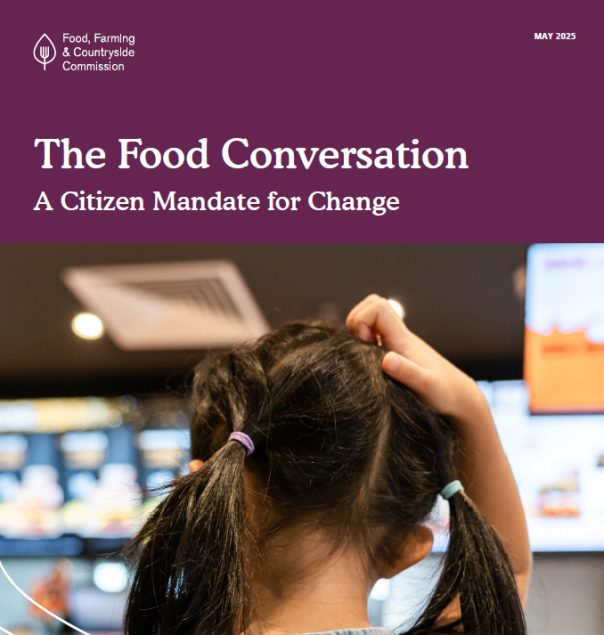
Dubbed ‘The Food Conversation’, the FFCC says it is the UK’s largest citizen deliberation about food, and the end result is a document titled ‘A Citizen Mandate for Change’, which it has just published.
Sue Pritchard, chief executive at FFCC, says: “After two years of talking and listening to citizens in The Food Conversation, we know a lot more about what people really want from food. Food connects all of us.
“Talking about food together quickly reveals how important food is in all aspects of our lives, from our health and wellbeing, to the state of the countryside, on climate and nature, to our trading relationships with other countries.
“They agree: enough healthy, safe food for everyone, fairly and sustainably produced, is the bedrock of a secure and resilient society.
“Through The Food Conversation, citizens have prioritised policies that ensure the food system works better for everyone, for a healthier, greener, fairer future. Now, they’re calling on leaders to grasp the nettle on food policy and make it their mission to fix food.”
And Jayne Jones, chair of the Public Sector Catering Alliance, adds: “The FFCC’s headline report, ‘A Citizen Mandate for Change’ outlines the views of citizens across the UK about the values and priorities for sustainable food systems change in the UK.
“It is a ‘must-read’ for all organisations and public sector leaders, regardless of whether food is at the top of their priority list at present, or not. It frames what people in the UK want to see, not what we think they want us to change.”
She highlighted the findings that food is a key player in moving to preventative investment in the UK today, and that citizens want to see decision-makers lead the way in creating change.
“Public food has a critical role to play in creating the conditions for food systems change and need to be leading exemplars in achieving impact,” she said.
The findings are the result of conversations which happened in 12 places across the UK involving hundreds of people. The participants heard directly from experts, explored complex problems and trade-offs, and weighed potential solutions. In addition to these conversations, the FFCC developed a toolkit for any community to use as a result of which 70 ‘community conversations’ happened.
Sue Pritchard added: “People care about what they eat and where it comes from. They want government to act on failings in the food system. As well as consensus on the kinds of changes citizens want to see, there are a consistent set of values transcending regional and demographic difference.”
She said these core values included a desire for a ‘fairer’ food system that prioritised protection of the vulnerable in society.
They also included a desire that government and industry are accountable in their actions and to protect people and the planet, and a recognition that healthy and sustainable food and farming is crucial to resilient and flourishing communities.
“People understand that the food system has become complicated and yet reject simplistic ‘consumer choice’ narratives in favour of systemic solutions that address underlying power imbalances.
“The Food Conversation is clear - the public want a rethink of the food system. They want it transformed to work for everyone – families, farmers, communities and the planet.
“Citizens want to help solve these knotty and complex problems. With this new Food Strategy consultation, there is now a powerful opportunity for governments and citizens to work together towards a healthier, fairer and more secure food future.”